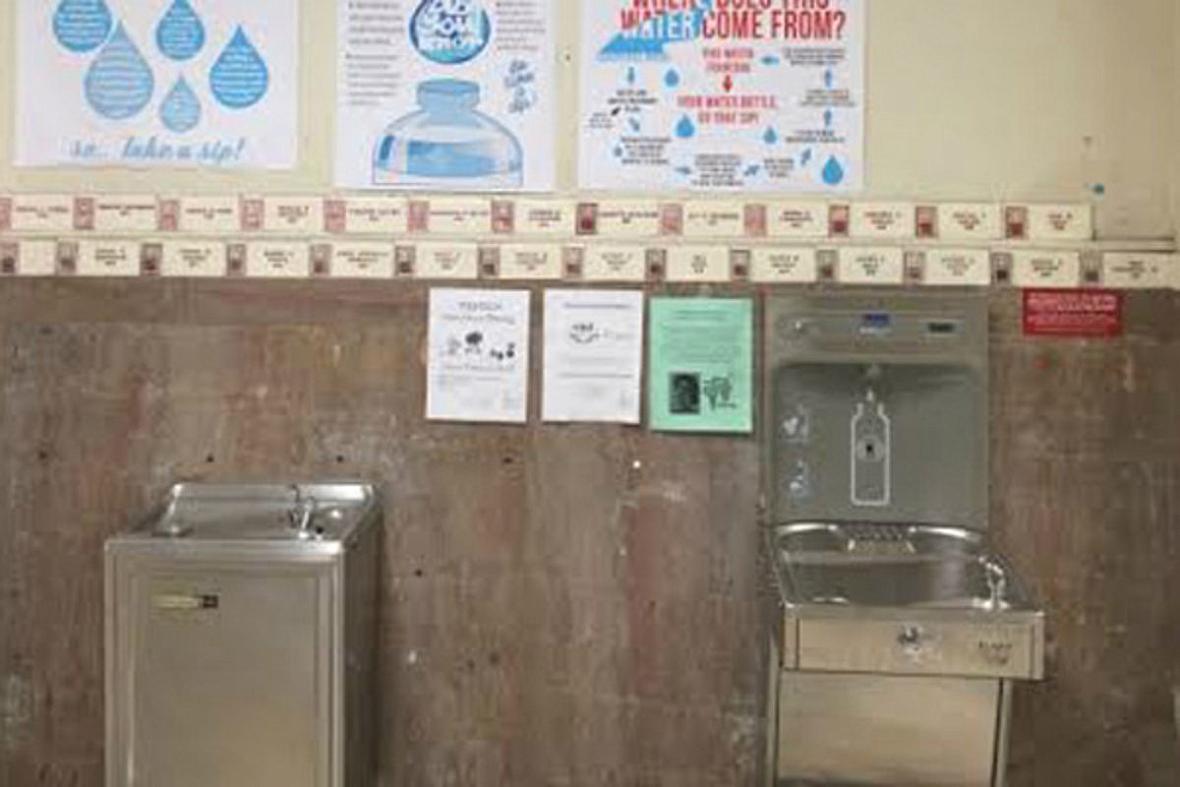Commentary: It's time to get the lead out of Philadelphia schools
This article was produced as a project for the National Health Journalism Fellowship, a program of the Center for Health Journalism at the USC Annenberg School for Communication and Journalism.
Other stories in the series include:
Philly's shame: City ignores thousands of poisoned kids
Philly aims to prevent lead poisoning before kids are harmed
Physician's 2-year-old son poisoned by lead in their Philadelphia home

Central High School students sold water bottles to raise money for water filtration and bottle-filling stations.
Over the past year, the nation watched a tragedy unfold in Flint, Mich., where an entire community's drinking water was contaminated with lead. But the problem extends well beyond Flint. Nearly 2,000 communities across the country have confirmed lead in tap water.
And it's not just residential taps: Data recently made public by the Philadelphia School District showed that nearly 15 percent of water samples taken from school drinking water outlets had lead higher than the legal level for home tap water.
Worse, the School District is moving at a snail's pace to uncover the threat, stating it will take 18 months to complete testing. New York City - with nearly five times as many schools as Philadelphia - did all its testing in a few months.
The negative health effects of lead are well known and well documented. We know lead is highly toxic, and it's especially damaging to kids - impairing how they learn, grow, and behave. Lead can also cause high blood pressure, and damage the nervous system and kidneys. According to the American Academy of Pediatrics, our kids will lose an estimated 23 million IQ points from lead exposure.
Now tests have confirmed that Philadelphia's public schools have lead in the water flowing from their faucets or fountains. In all likelihood, that is just the tip of the iceberg. Many schools in Pennsylvania have some lead in the pipes, plumbing, or fixtures that deliver the water our children drink. And where there is lead, there is risk.
There is no safe level of lead for children. Yet while the Environmental Protection Agency and the Centers for Disease Control agree on this, our water utility companies are only required to take action when tests show lead in drinking water at 15 parts per billion is found in 10 percent of their test results. Incredibly, neither Philadelphia nor Pennsylvania has an independent requirement that schools ensure the water our children drink is lead-free.
This should change. Philadelphia should pledge to set stringent standards beyond the weak federal standards of 15 parts per billionth (ppb) for schools' drinking water. For example, Washington, D.C., announced this summer that it plans to set a standard of 1 ppb for schools. A standard of 5 ppb would be a laudable starting point for Philadelphia.
In the meantime, Philadelphia must "get the lead out." First, schools should regularly, swiftly, and properly test all water outlets used for drinking or cooking - and immediately remove from service those where the water contains lead above the action level. And the district must provide the public with easy access to specific testing data and the status of remediation plans. Lastly, it's critical that the district, and local and state elected officials, work proactively to remove lead-bearing parts from schools' drinking water systems as quickly as possible. This includes replacing service lines, faucets, and fountains - and installing certified filters at taps and fountains used for drinking or cooking.
School is where our children spend most their waking hours, learning and playing. The district needs to "get the lead out" before it's too late.
David Masur is the executive director of PennEnvironment. davidmasur@pennenvironment.org
Robin Roberts is an organizing member of Parents United for Public Education. robrob@temple.edu
Jerry Roseman is the director of environmental science and occupational safety and health for the Philadelphia Federation of Teachers' health and welfare fund and union. jeralia@icloud.com

